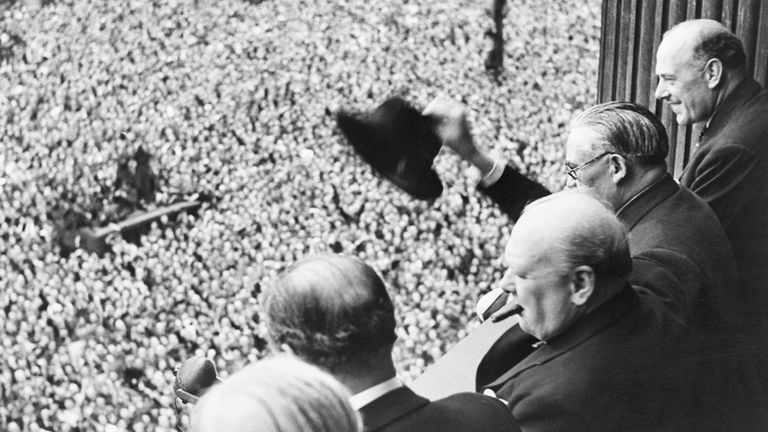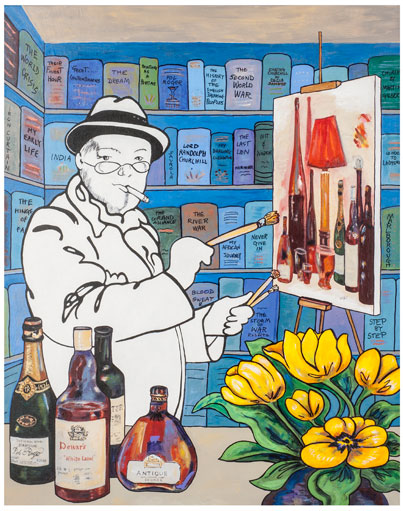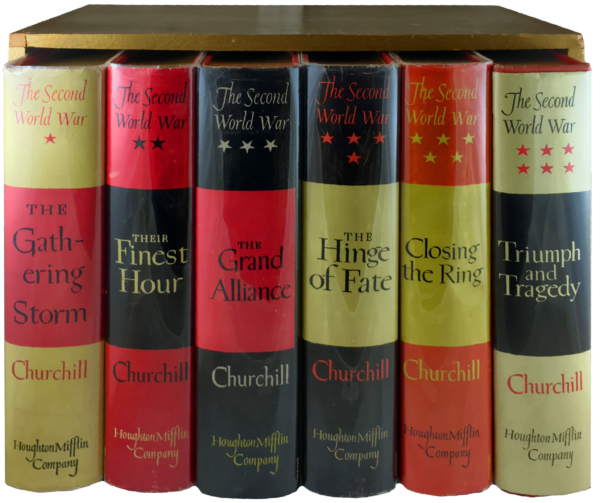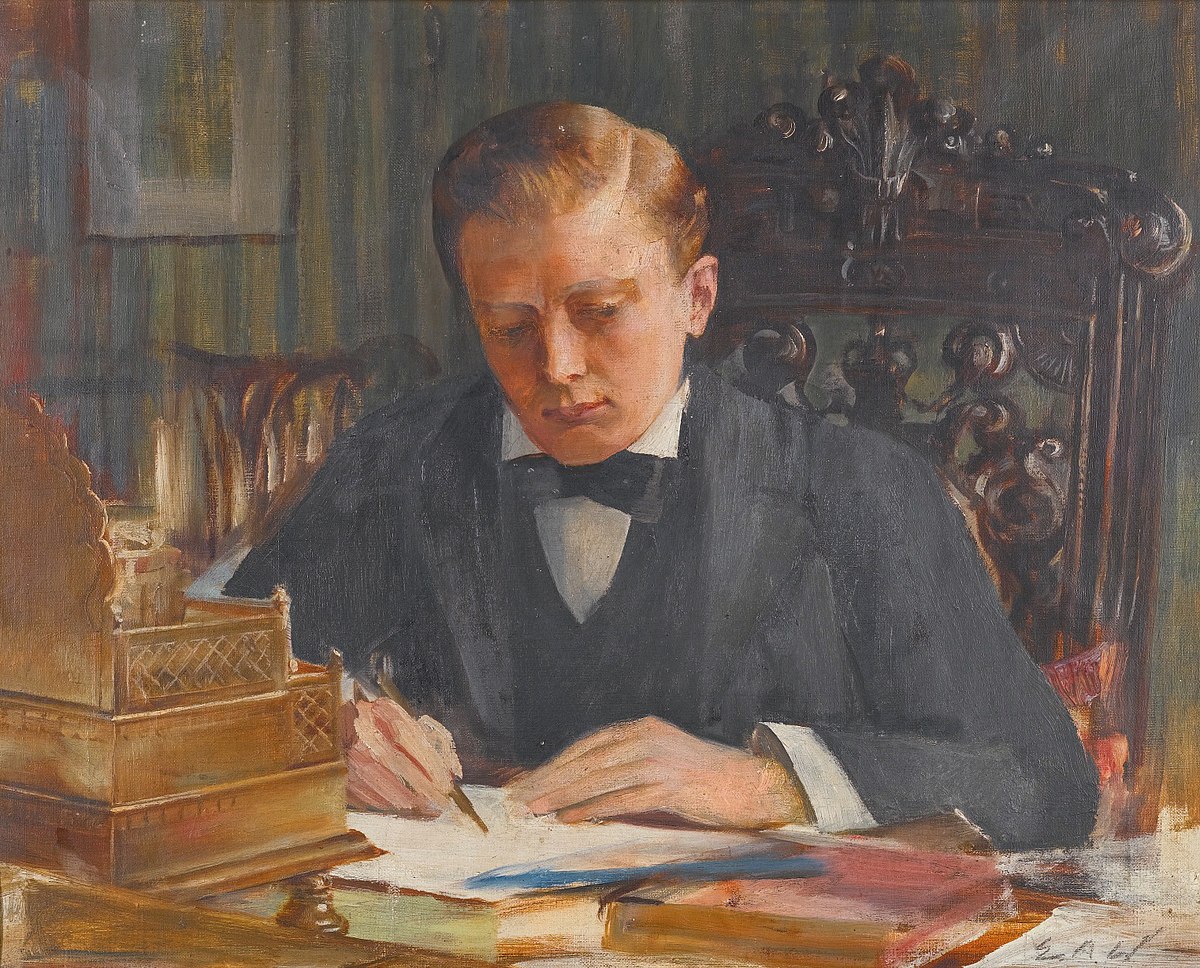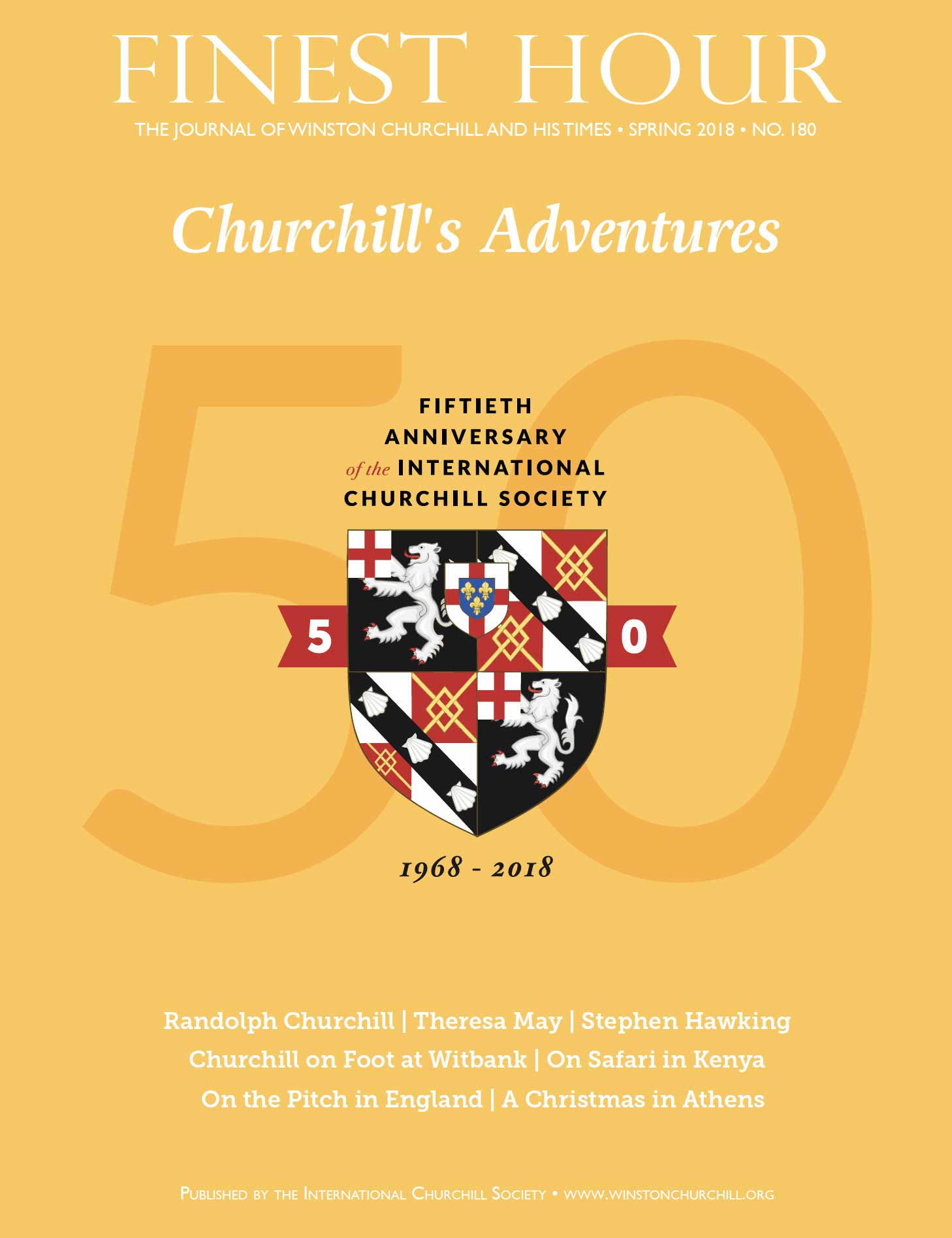Quotes
The End of the First World War
Winston Churchill records his thoughts on moment the First World War ended.
‘It was a few minutes before the eleventh hour of the eleventh day of the eleventh month. I stood at the window of my room looking up Northumberland Avenue towards Trafalgar Square, waiting for Big Ben to tell that the War was over. My mind strayed back across the scarring years to the scene and emotions of the night at the Admiralty when I listened for these same chimes in order to give the signal of war against Germany to our Fleets and squadrons across the world. And now all was over! The unarmed and untrained island nation, who with no defence but its Navy had faced unquestioningly the strongest manifestation of military power in human record, had completed its task. Our country had emerged from the ordeal alive and safe, its vast possessions intact, its war effort still waxing, its institutions unshaken, its people and Empire united as never before. Victory had come after all the hazards and heartbreaks in an absolute and unlimited form. All the Kings and Emperors with whom we had warred were in flight or exile. All their Armies and Fleets were destroyed or subdued. In this Britain had borne a notable part, and done her best from first to last.
The minutes passed. I was conscious of reaction rather than elation. The material purposes on which one’s work had been centred, every process of thought on which one had lived, crumbled into nothing. The whole vast business of supply, the growing outputs, the careful hoards, the secret future plans—but yesterday the whole duty of life—all at a stroke vanished like a nightmare dream, leaving a void behind. My mind mechanically persisted in exploring the problems of demobilization. What was to happen to our three million Munition workers? What would they make now? How would the roaring factories be converted? How in fact are swords beaten into ploughshares? How long would it take to bring the Armies home? What would they do when they got home?…
Read Full QuoteChurchill on the Death of His Mother Lady Randolph
‘I wish you could have seen her as she lay at rest—after all the sunshine and storm of life was over. Very beautiful and splendid she looked. Since the morning with its pangs, thirty years had fallen from her brow. She recalled to me the countenance I had admired as a child when she was in her heyday and the old brilliant world of the eighties and nineties seemed to come back.’
– Winston on his beloved mother, Lady Randolph Churchill. 1 July 1921.
Read Full Quote
Lady Violet Bonham Carter’s Political Speeches
‘In Lady Violet Bonham Carter we have not only a Liberal of unimpeachable loyalty to the Party, but one of the finest speakers in the country. Her speech against Socialism which was so widely read two months ago recalled the style of old and famous days.’
– Winston Churchill, Woodford, Essex, 28 January 1950.
Read Full Quote
The Future of Television
‘The television has come to take its place in the world; as a rather old-fashioned person I have not been one of its principal champions, but I don’t think it needs any champion. I think it can make its own way and I think it’s a wonderful thing indeed to think that every expression on my face at this moment may be viewed by millions of people throughout the United States. I hope that the raw material is as good as the methods of distribution.’
-Sir Winston Churchill, 1952, Press Conference, New York.
Read Full Quote
Unconditional Surrender of Japan
Japanese Surrender 14 August 1945
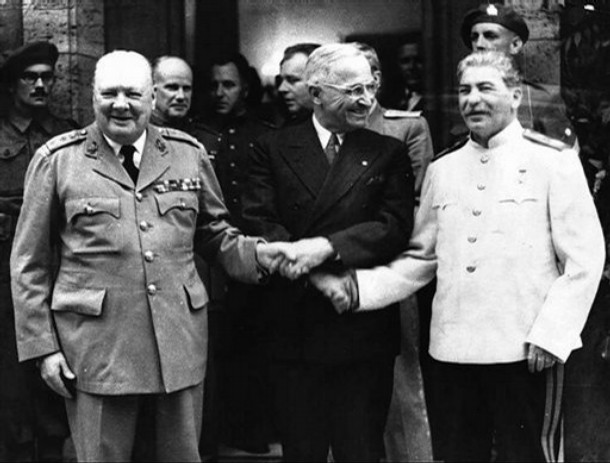 Winston Churchill, Harry Truman and Joseph Stalin at the Potsdam Conference the month before the Japanese surrender.
Winston Churchill, Harry Truman and Joseph Stalin at the Potsdam Conference the month before the Japanese surrender.
According to Sir Martin Gilbert in his epic Churchill biography here’s how the final days played out.
“On August 8, two days after Hiroshima, the Soviet Union declared war on Japan, and Soviet troops, already massed on the Manchurian frontier, drove southward in a series of fierce and bloody battles. On August 9 a second atom bomb was dropped, this time on Nagasaki. Two Japanese cities had been all but obliterated. ‘It may well be that events will bring the Japanese War to an early close,’ Churchill wrote to Attlee on August 10. ‘Indeed I hope this may be so, for it means an immense lightening of the load we expected to carry.’ That day, Radio Tokyo broadcast an appeal to the Allies to accept the Japanese surrender. ‘We have as yet nothing more than the Tokyo broadcast,’ Attlee wrote to Churchill later that day, ‘but are seeking confirmation. I will let you know as soon as I have news.’ The probability was, Attlee believed, that Japan would formally surrender ‘in the next 48 hours’, and he went on: ‘I feel that the probability of the surrender of our last enemy is so great that I must, at once, offer to you, our leader from the darkest hours through so many anxious days, my congratulations on this crowning result of your work.’ On August 14 the Japanese Government accepted the Allied terms. The Second World War was over.”
Read Full Quote
Churchill’s First Impressions of New York
Churchill to Mrs John Leslie
12 November 1895
763 Fifth Avenue
“…So far I think the means of communication in New York have struck me the most. The comfort and convenience of elevated railways—tramways—cable cars & ferries, harmoniously fitted into a perfect system accessible alike to the richest and the poorest—is extraordinary. And when one reflects that such benefits have been secured to the people not by confiscation of the property of the rich or by arbitrary taxation but simply by business enterprise—out of which the promoters themselves have made colossal fortunes, one cannot fail to be impressed with the excellence of the active system. But New York is full of contradictions and contrasts. I paid my fare across Brooklyn Bridge with a paper dollar. I should think the most disreputable ‘coin’ the world has ever seen [He was used to golden sovereigns and half-sovereigns]. I wondered how to reconcile the magnificent system of communication with the abominable currency for a considerable time and at length I have found what may be a solution. The communication of New York is due to private enterprise while the state is responsible for the currency: and hence I come to the conclusion that the first class men of America are in the counting house and the less brilliant ones in the government….”
Read Full Quote
Famous Quotes and Stories
Read a selection of Winston Churchill’s most famous quotes
“No One Would Do Such Things”
“So now the Admiralty wireless whispers through the ether to the tall masts of ships, and captains pace their decks absorbed in thought. It is nothing. It is less than nothing. It is too foolish, too fantastic to be thought of in the twentieth century. Or is it fire and murder leaping out of the darkness at our throats, torpedoes ripping the bellies of half-awakened ships, a sunrise on a vanished naval supremacy, and an island well-guarded hitherto, at last defenceless? No, it is nothing. No one would do such things. Civilization has climbed above such perils. The interdependence of nations in trade and traffic, the sense of public law, the Hague Convention, Liberal principles, the Labour Party, high finance, Christian charity, common sense have rendered such nightmares impossible. Are you quite sure? It would be a pity to be wrong. Such a mistake could only be made once—once for all.”
—1923, recalling the possibility of war between France and Germany after the Agadir Crisis of 1911, in The World Crisis, vol. 1, 1911-1914, pp. 48-49.
Read Full Quote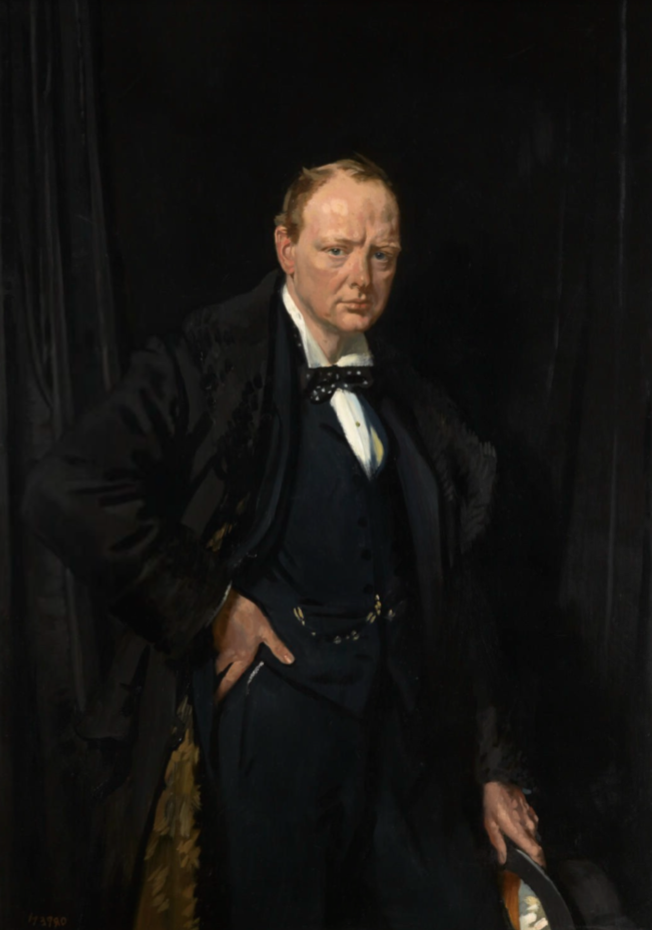
WORDS
Winston Churchill Quotes
SCIENTIFIC PROGRESS
It is arguable whether the human race have been gainers by the march of science beyond the steam engine. Electricity opens a field of infinite conveniences to ever greater numbers, but they may well have to pay dearly for them. But anyhow in my thought I stop short of the internal combustion engine which has made the world so much smaller. Still more must we fear the consequences of entrusting to a human race so little different from their predecessors of the so-called barbarous ages such awful agencies as the atomic bomb. Give me the horse.
Scientific Progress~ Winston Churchill, 10 July 1951, Royal College of Physicians, London

Churchill 2024
Celebrate the 150th Anniversary of Winston Churchill's Birth
A year of events to celebrate this important anniversary.
Find Out MoreWriting, Articles & Books
In his lifetime, Churchill published more than 40 books in 60 volumes.
View his writingYoung Churchillians
Working to celebrate the life and achievements of a great leader.
Young ChurchilliansPublications
In his lifetime, Churchill published more than 40 books in 60 volumes.
View PublicationsSubscribe
WANT MORE?
Get the Churchill Bulletin delivered to your inbox once a month.
